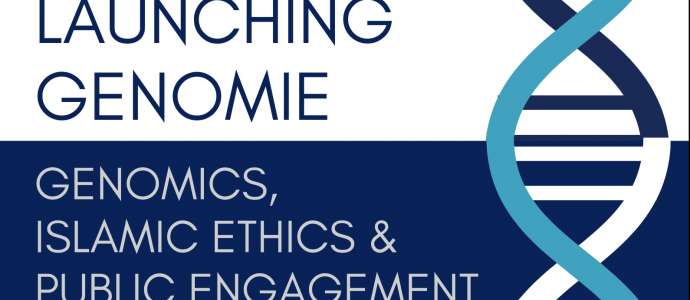
A virtual public engagement platform for dialogue on genomics and Islamic ethics
In line with its mission to frame contemporary debates on Islam in a global context, the College of Islamic Studies (CIS) at Hamad Bin Khalifa University (HBKU) has launched Genomie, a virtual public engagement platform for conversations between experts and the public on developments in the field of genomics.
Part of the Qatar National Research Fund (QNRF)-funded Genomics, Islamic Ethics and Public Engagement (GIEPE), Genomie will also explore how Muslim public awareness of, and engagement with, genomics can be improved. To assist, the project will use webinars, articles and social media to inform the public of current developments concerning genomics and Islamic ethics research. Engagement with both subjects will also be promoted through polls, surveys and focus groups designed specifically to gauge public experiences and concerns. In doing so, Genomie promotes the co-production of research by encouraging the public to identify and shape research priorities and participate in steering groups.
The project’s first webinar, Launching Genomie, took place on September 19, 2020 and explored the role and importance of public engagement in shaping science. Proceedings were chaired by project co-lead Dr. Arzoo Ahmed with contributions by GIEPE lead Dr. Mohammad Ghaly, in addition to Dr. Said Ismail (Qatar Genome Project), and researchers affiliated with the QNR project including Dr. Mehrunisha Suleman (The Health Foundation and Genomie co-lead), Dr. Walid Qoronfleh (World Innovation Summit for Health - WISH), and Dr. Khalid Fakhro (Sidra Medicine). Besides discussing various issues, how the science of genomics can be introduced to the general public, the webinar also made a call for members of the public to join the Genomie Steering Group.
Regarding the Genomie project, Dr. Ghaly, who is also professor of Islam and Bioethics at CIS, said:
Genomie is extracted the Arabic equivalent for ‘my genome’ in English and, as such, reflects our commitment to engaging with the public on the issues of genomics and Islamic ethics. However, what sets this project apart from others is our ambition for the type and extent of engagement. From our webinars to calls for steering group members, and more, we’re determined to open up participation in Genomie to as many stakeholders as possible. We’re confident that this will facilitate a deeper understanding of both genomics and Islamic ethics, and heighten awareness of the research strengths and interests of the academic community in Qatar and beyond
For further information on joining the Genomie Project Steering Group, please contact genomieproject@gmail.com
For more information on the work of the College of Islamic Studies at Hamad Bin Khalifa University, please visit www.hbku.edu.qa/en/cis
Thanks to all who attended our launching #genomie webinar today! A great & lively discussion spanning #science, #history, #policy, #healthcare, #ethics, #religion & #public #engagement.
Sign up here for a recording & to hear about our future activities: https://t.co/KqEgMpVboS. pic.twitter.com/icNuXtfndy
— Genomie (@Genom1e) September 19, 2020
About Hamad Bin Khalifa University
Innovating Today, Shaping Tomorrow
Hamad Bin Khalifa University (HBKU), a member of Qatar Foundation for Education, Science, and Community Development (QF), was founded in 2010 as a research-intensive university that acts as a catalyst for transformative change in Qatar and the region while having global impact. Located in Education City, HBKU is committed to building and cultivating human capacity through an enriching academic experience, innovative ecosystem, and unique partnerships. HBKU delivers multidisciplinary undergraduate and graduate programs through its colleges, and provides opportunities for research and scholarship through its institutes and centers. For more information about HBKU, visit www.hbku.edu.qa.




Add new comment